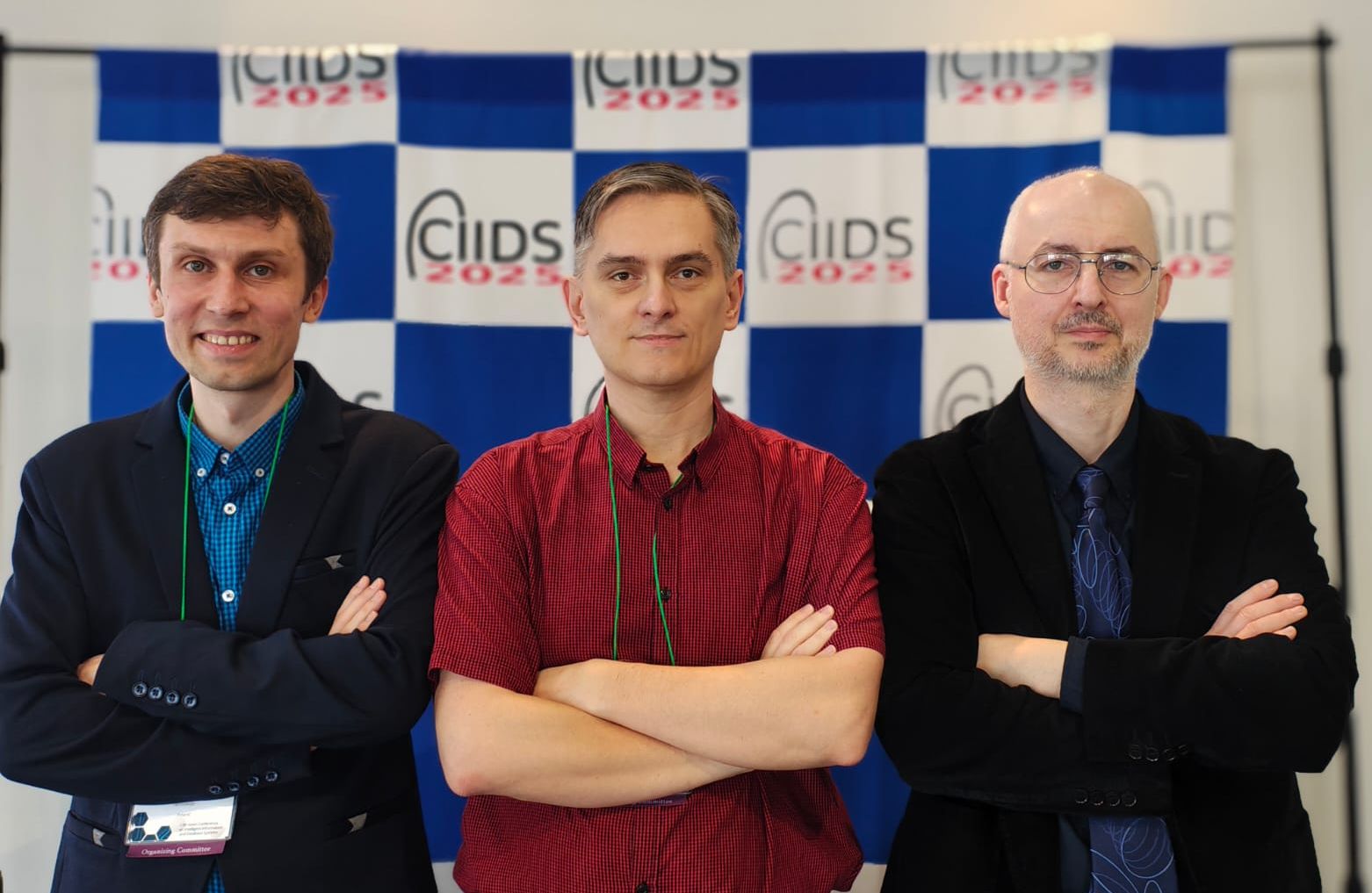
Is it possible to effectively forecast air pollution levels in cities that don't have an extensive monitoring network? Our Faculty's researchers posed this challenge to the participants of the international Air Pollution Prediction&Modeling Hackathon
The competition, which began on 22 April in Kitakyushu, Japan, is the first of many activities conducted in collaboration with Japanese partners as part of Expo 2025 in Osaka. Our researchers will participate not only in the hackathon, but also in a series of seminars, meetings, and conferences, and will also conduct workshops on creating „relaxation furniture," which are pieces made from cardboard.
The competition is organised by scientists from the Department of Applied Computer Science: Dr. Maciej Huk, Dr. Marcin Jodłowiec, Dr. Thanh-Ngo Nguyen, Dr. Rafał Palak, Dr. Krystian Wojtkiewicz and Wiktoria Wojtkiewicz, M.Sc. The competition participants are expected to create predictive models of air quality that are scalable, portable, and can be implemented in cities with limited access to advanced measurement infrastructure. The competitors will attempt to develop algorithms that enable the forecasting of pollution based on climatically and geographically similar data.

– Andrew Ng, one of the architects of the modern approach to artificial intelligence, says that just as electricity revolutionised the world a hundred years ago, it is difficult today to point to an industry that AI will not transform in the coming years – says Dr. Rafał Palak, one of the initiators and coordinators of the hackathon. Our goal is to popularise solutions based on artificial intelligence and to highlight their universal potential, both in the context of advanced technologies and contemporary civilisational challenges, such as combating air pollution. We want to show that AI is not a distant future, but a real tool that can already today support sustainable development and improve the quality of life.
Teams from all over the world, including Japan, India, Australia, and Poland, have already declared their intention to participate in the competition. The solutions can still be submitted. The registration is open until 31 July.
Symposia, meetings and workshops
An additional part of the WUST project at the Expo is the September series of six hybrid scientific symposia under the slogan „Innovating Together: Enhancing Japan-Poland Research Cooperation”. Our experts from the Faculties of Architecture, Mechanical and Power Engineering, Mechanical Engineering, and Electronics, Photonics, and Microsystems, specialising in automation, energy, space technologies, and design, will participate in meetings at leading Japanese universities: Tohoku University, KEIO University, and Shibaura Institute of Technology.
– We want to demonstrate the potential of our researchers, as well as strengthen the cooperation with Japanese partners. We are counting on new joint projects, internships, and study programmes – says Adriana Naciążek, the project leader from the International Relations Centre at Wrocław University of Science and Technology.
Our scientists from the Faculty of Civil Engineering will also fly to Japan to participate in the „Hybrid Structures and Steel-Concrete Composite Structures – Solutions for Building the Future" event at the Osaka Institute of Technology. The agenda for the September visit includes, among other things, demonstration of durability tests at the OIT laboratories and discussions with representatives from design companies in Japan and Poland.
September is also when the Rest Area Makers workshops will take place, which will offer a glimpse into the architecture of the future. In the Polish pavilion at the Expo, Dr. Jerzy Łątka's team from the Faculty of Architecture will invite participants to create relaxation spaces that combine functionality with the concept of sustainable design. The participants will be able to take home their own handmade cardboard seats and furniture.
The classes will be preceded by presentations on the use of paper and its derivatives as building materials – from temporary shelters to permanent structures.
Portal wiedzy: łączymy siły online
The digital heart of the project will be the Polish-Japanese Knowledge Exchange Portal website, prepared by the Centre for International Relations in collaboration with the Faculty of Information and Communication Technology. – This is a tool for collaboration, exchange of experiences, and presentation of research results, created to support long-term cooperation between Polish and Japanese scientists – explains Adriana Naciążek.
All activities are carried out as part of the project „Wrocław University of Science and Technology at the centre of global innovations: the Polish-Japanese promotion and cooperation" project, financed in the amount of 400,000 PLN by the National Agency for Academic Exchange. The aim of the programme is to promote Polish science and higher education during the World Expo 2025 in Osaka, which commenced on 13 April and will continue until 13 October.
Expo is one of the most prestigious and significant international events. The exhibition, organised every five years, combines elements related to economy, culture, and tourism. The next edition in 2030 will be hosted by Saudi Arabia.

